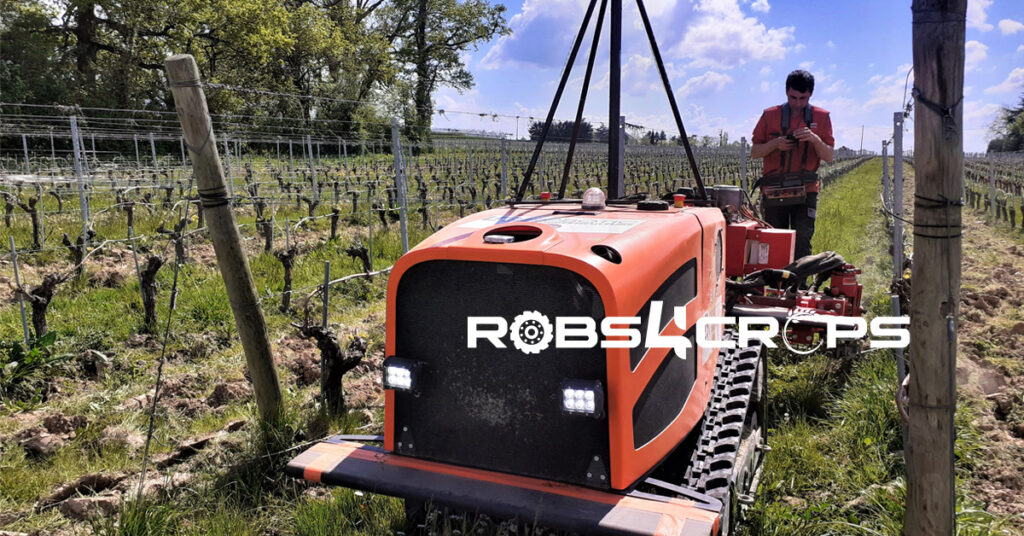Robs4Crops is revolutionizing vineyard weeding, with our remarkable French pilot, Large Scale Pilot #1, set to unveil an unprecedented breakthrough in the field. Immerse yourself in the future of farming as we automate complex mechanical weeding, addressing the challenges of chemical dependency and labour scarcity. The French pilot team provided insight into the advancement of the pilot.
What notable progress has been achieved thus far in the field?
Since the start of the year, the French large-scale pilot (LSP1) has successfully completed a total of 15 comprehensive weeding operations using its two robots across five distinct plots. Remarkably, LSP1 has maintained its projected timeline without encountering significant technical hurdles. Additionally, significant advancements have been made in the development of Smart implements. Having undergone three testing sessions, the weeding quality sensors now operate flawlessly, enabling the robot to seamlessly communicate its precise position and speed to the farming controller.
To what extent is collaboration and involvement of consortium members crucial in driving the development of ground-breaking solutions?
The successful execution of the aforementioned test sessions owes its accomplishment to the active engagement of consortium members. Their invaluable contributions encompass the installation of sensors and the corresponding computational systems, ensuring the seamless functioning of the entire setup. The consortium’s involvement not only provides us with the chance to explore novel technologies that enhance the intelligence of weeding processes but serves as a mere illustration of their broader significance.
With the increasing prevalence of live tests in the field, how are farmers embracing and adapting to this emerging technology?
The farmers collaborating with LSP1 demonstrate high enthusiasm for the innovative technologies employed. As the robot continues to enhance its capabilities, their interest grows, as they actively monitor our experiments. While they may not have personally operated a robot, they unmistakably recognize the integration of robots into agricultural operations.
Now that multiple tests have been carried out, would you kindly provide insights into the progress made during the process and enlighten us about the forthcoming steps?
In 2023, LSP1 is engaged in experimental activities across five plots, requiring approximately seven rounds of weeding per year. The weeding season spans from November/December to July/August, indicating that LSP1 is currently at the midpoint of its operations. Regarding the Smart Implements, the integration of weeding quality sensors is nearing completion and expected to be fully functional by early May. Moreover, LSP1 is focused on the objective of empowering farmers by “putting the robot in their hands.” This initiative involves conducting fieldwork sessions with multiple winegrowers, enabling the collection of valuable data. The co-design session planned for 2023 will be integrated into this undertaking.

